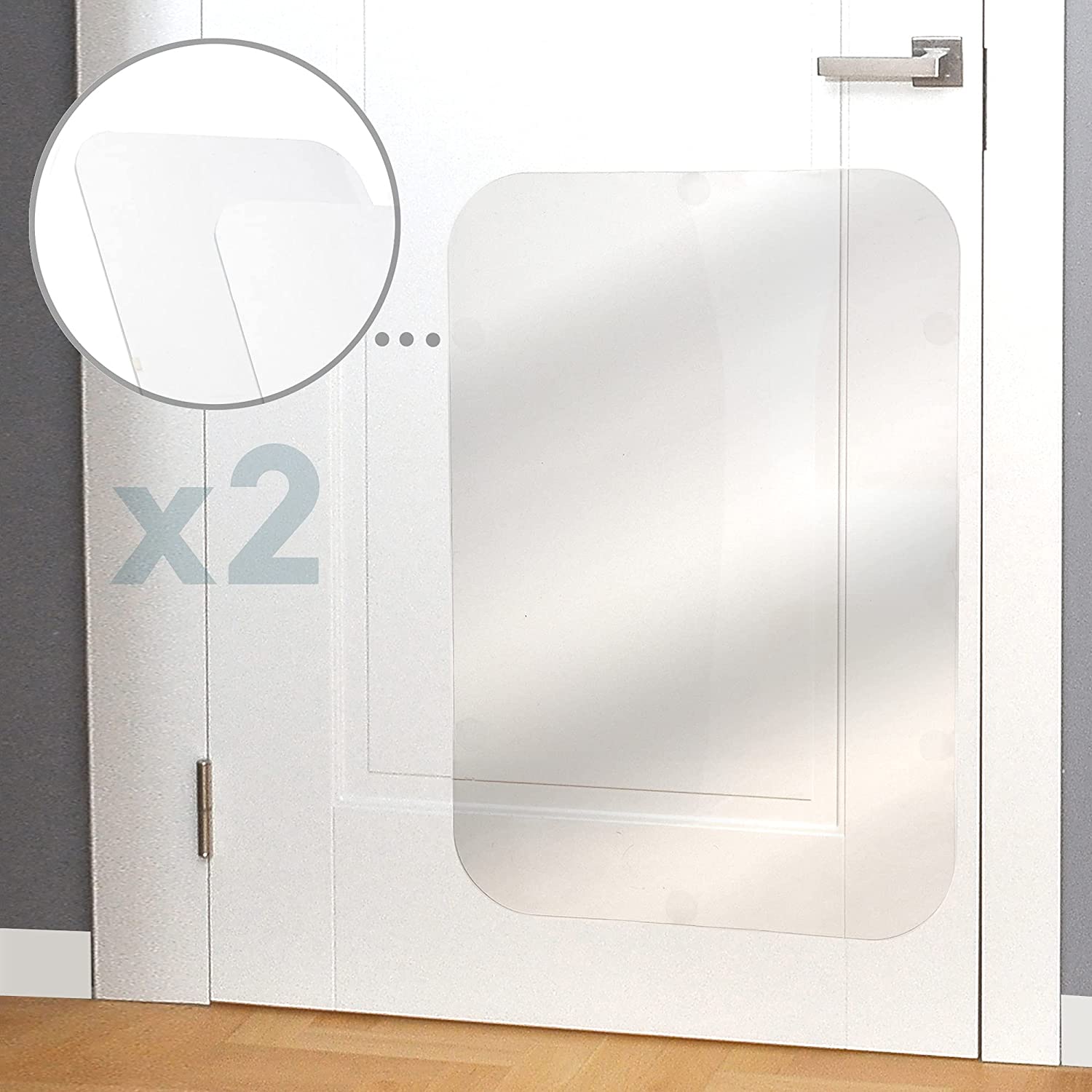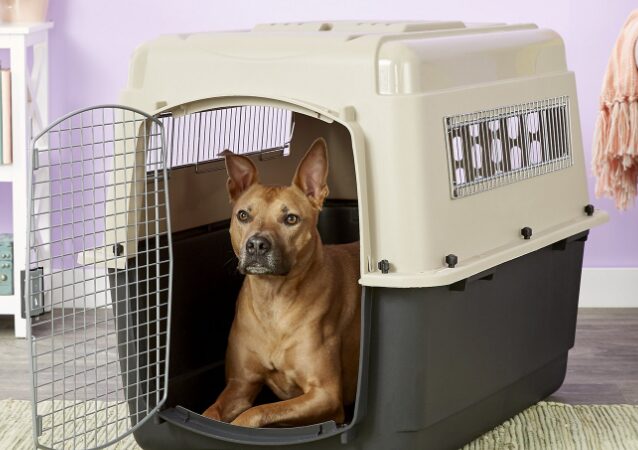Our goal is to share information and products that are truly helpful to renters.
If you click on a link or buy a product from one of the partners on our site, we get paid a little bit for making the introduction. This means we might feature certain partners sooner, more frequently, or more prominently in our articles, but we’ll always make sure you have a good set of options. This is how we are able to provide you with the content and features for free. Our partners cannot pay us to guarantee favorable reviews of their products or services — and our opinions and advice are our own based on research and input from renters like you. Here is a list of our partners.
Preventing pet damage in your apartment
How to keep your pet from destroying your security deposit
True story. An energetic, newly-adopted labrador retriever kept getting into trouble when its family was away. So, the fur parents, thinking they were smart, shut the dog in the bathroom while they were away. They came home to a flooded house. The anxious dog chewed through the bathroom pipes. Long story, short preventing pet damage in your apartment can save you and your landlord a lot of money.
The kind of damage most landlords care about is damage to the property. They don’t care that Princess chewed up your favorite slippers or decorative couch cushion. Property owners care about things like their carpets, floors, walls, windows, and fixtures. When you move out, if these types of apartment components are damaged or smelly, you could lose part of your security deposit. Most landlords charge an extra pet deposit to help cover these types of damages.
With extra care and training, you can proactively protect your security deposit from pet damage costs. Some measures may involve minor alterations, others old-fashioned elbow grease. Of course, major alterations like installing a pet door require your landlord’s approval.
How to protect your apartment from pet damage
1. Doors: scratched doors and door frames
Dogs and cats like to signal they want a door opened by scratching on it. Some dogs even chew on door frames. The result is unattractive and quite obvious.
- Make sure they have plenty of durable toys and exercise.
- Address any medical or anxiety issues.
- Train your dog not to scratch the door when they are puppies.
- Hang a door scratcher for your cat.
- Apply an anti-chewing spray to door frames.
- Cover popular spots using a removable adhesive cover.

2. Odor: carpet and floor odor
Odor is one of the biggest offenders, especially for cats. But all types of pets can cause odor issues, including dogs, cats, ferrets, hamsters, guinea pigs, and rabbits. The most common issues are, of course, urine and feces.
- Don’t leave your pet for long periods without a pet sitter.
- Keep on hand a good carpet cleaner that removes pet odors.
- Put a mat under your cat’s or rabbit’s litter box and clean the box daily.
- Keep items off of the floor, such as clothing, which some cats like to pee on.
- Address underlying health issues, such as bladder infections.
- Purchase a good pet vacuum and, if you can afford it, a carpet cleaner.
- Keep clean their most “visited” areas and hire a professional carpet cleaner if needed.
3. Windows: Torn window screens and broken blinds
We’ve all seen a cat peeking through blinds or a dog barking from a window, or worse, pushing through the screens. We understand that they want to look outside to see what is going on outside of their apartment. But landlords do not appreciate broken blinds or holes in window screens.
- Ask your property manager if you can hang your own window coverings to save theirs.
- Pull the blinds, tuck the cord, and put a curtain over the window using a tension curtain rod.
- Pull the blinds up and put adhesive (removable) window coverings over the glass.
- Again, as with all issues, make sure they have enough toys and distractions.
- Learn how to fix blinds. Most come with extra slats located at the bottom rung.
4. Floors: scratched wood floors and linoleum
Anxious dogs or even cheeky cats scratch floors, especially around doors and their food areas. This behavior can be expensive for you. Do everything you can to deter this behavior.
- Trim your pet’s nails or take them to the groomer.
- Lay a large cheap carpet over their favorite areas. Install carpet runners.
- Apply toenail coverings to your pet. Cat nail covers also help protect your furniture.
- Keep your floors well attended. If they need to be waxed, keep them waxed.
- Make sure your pet has toys and gets enough exercise.
- Clean your dog’s paws when they come in from a walk.
5. Plumbing: pipes and fixtures
Dogs can chew through pipes, dig up sprinkler lines and bite off plumbing fixtures. For the most part, this is a dog issue rather than a cat or parrot problem, for example. Curbing this behavior requires attention (on your part), distraction (for the dog), and training (for both of you).
- Buy dog chew toys to help keep your dog from chewing things it should not.
- Address anxiety issues it may be experiencing while you are away.
- If it is a digger, do not leave it unattended in the yard.
- Provide them with ample exercise.
- Make sure the dog is not experiencing underlying health or dental issues.
- If needed, fasten cabinets and keep bathroom doors closed.
- Kennel train your dog.

Preventing pet damage to your apartment is a full-time job and despite your best efforts, damage may still occur. To help protect yourself, make sure your renters insurance offers protection for pet damage and liability — in case your dog chews through a pipe and floods your apartment. It could happen.
Your renters rights, in your state.
Explore what you need to know.
- Alabama Renters Rights
- Alaska Renters Rights
- Arizona Renters Rights
- Arkansas Renters Rights
- California Renters Rights
- Colorado Renters Rights
- Connecticut Renters Rights
- Delaware Renters Rights
- Florida Renters Rights
- Georgia Renters Rights
- Hawaii Renters Rights
- Idaho Renters Rights
- Illinois Renters Rights
- Indiana Renters Rights
- Iowa Renters Rights
- Kansas Renters Rights
- Kentucky Renters Rights
- Louisiana Renters Rights
- Maine Renters Rights
- Maryland Renters Rights
- Massachusetts Renters Rights
- Michigan Renters Rights
- Minnesota Renters Rights
- Mississippi Renters Rights
- Missouri Renters Rights
- Montana Renters Rights
- Nebraska Renters Rights
- Nevada Renters Rights
- New Hampshire Renters Rights
- New Jersey Renters Rights
- New Mexico Renters Rights
- New York Renters Rights
- North Carolina Renters Rights
- North Dakota Renters Rights
- Ohio Renters Rights
- Oklahoma Renters Rights
- Oregon Renters Rights
- Pennsylvania Renters Rights
- Rhode Island Renters Rights
- South Carolina Renters Rights
- South Dakota Renters Rights
- Tennessee Renters Rights
- Texas Renters Rights
- Utah Renters Rights
- Vermont Renters Rights
- Virginia Renters Rights
- Washington Renters Rights
- West Virginia Renters Rights
- Wisconsin Renters Rights
- Wyoming Renters Rights
- Washington, D.C. Renters Rights
